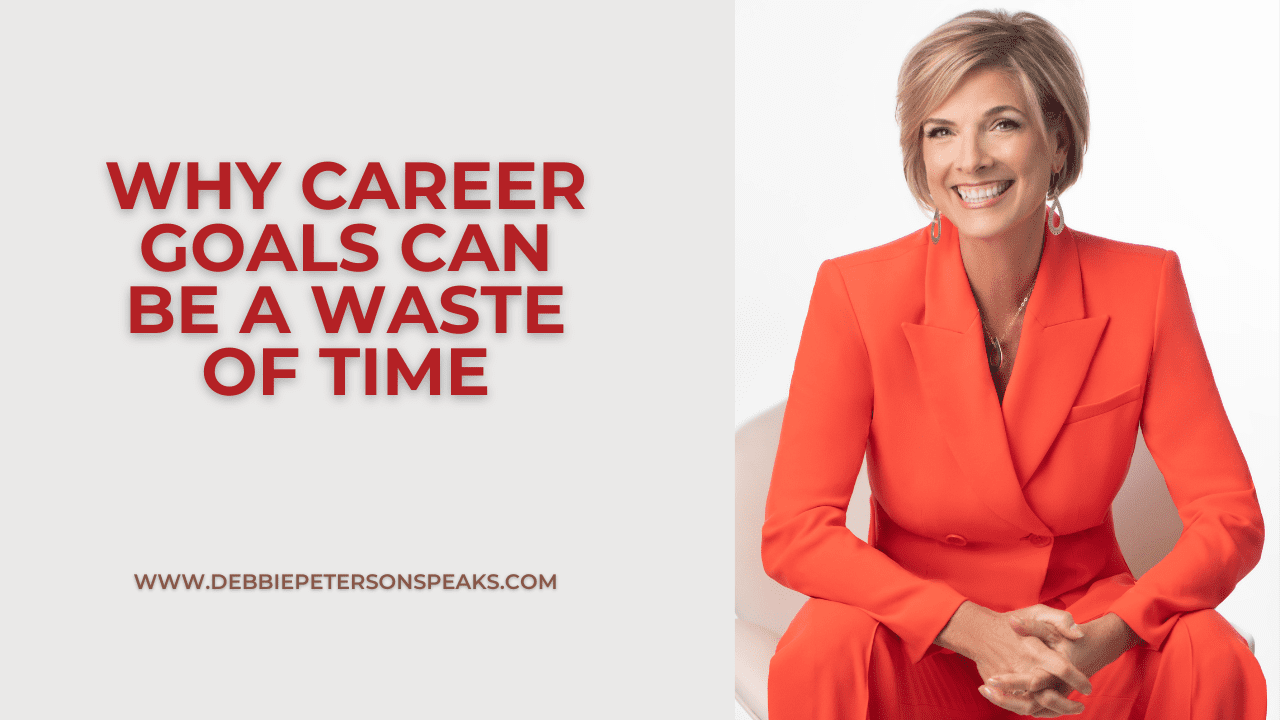Setting career goals is a common practice, often peddled as the road to success. However, without clarity about what we truly desire, why we want it, and how it aligns with what is most important to us, these goals can end up being not just unhelpful but a real waste of our time and energy. Have you ever found yourself driving in the wrong direction without knowing it, only to have to turn around and drive it again in the other direction? It’s frustrating! That’s also the risk we run when we chase after goals that don’t genuinely resonate with who we are and what matters most to us.
Having clarity is not just helpful; it’s essential. Without it, we risk playing small—settling for the comfortable or familiar rather than reaching for what could truly fulfill us. A lack of clarity can scatter our focus across too many focuses, diluting our efforts and sapping our energy. Moving in this direction can even sabotage our well-being as we push ourselves toward achievements that don’t actually align with our deeper needs or ambitions. When we are clear about our goals, we channel our resources and energy into goals that are meaningful and impactful, not just to our careers but to our overall quality of life.
So, what does a well-defined career goal look like? A great question!
It’s one that’s customized to your unique situation and goals. This isn’t about generic outcomes like “increase sales by 20%” or “get promoted to manager.” Instead, it’s about specifically defining what success looks and feels like for you personally. Is it about achieving harmony in your work and life, gaining recognition in your field, or making a bigger impact in your community? Your career goals should not only reflect your professional goals but also incorporate your personal desires and the other areas of your life that are most important to you.
How do we go about this process? Here are some tips to get you started with a vision and then into action.
- Start by defining your broader aim for your career or leadership role. What impact do you want to have? What kind of leader do you aspire to be?
- Give good thought to which areas of your life are most important at this time—be it family, health, personal growth, or community involvement—and think about how these can integrate with your career.
- Establish SMART (Specific, Measurable, Achievable, Relevant, Time-bound) goals that support your broader career ambitions.
- Identify mentors, coaches, or supportive colleagues who can guide and assist you in your journey.
These tips will ensure that your career goals are not just well-defined but are also deeply resonant to you and, therefore, sustainable.
So, if you’re feeling stuck or unfulfilled by your current career path and want to make a bigger impact, it’s a powerful tool to step back and seek clarity. Here are some questions to guide you. Ask yourself: What truly matters to me? What impact do I want to make? Realigning your goals around these answers not only generates real, meaningful professional growth but also supports your personal well-being.
As your first step, consider your direction for your career or leadership. Spend some thought considering what you really want to accomplish and make sure it’s a fit for you. Just because you can do it doesn’t mean you should. If you are uncertain, that’s ok. Now is your opportunity to be curious. What do you have passion for in your career or leadership? Who do you admire professionally? Curiosity will guide you toward your answers if you are open to it. If you’d like a resource to help, check out www.ClarityWorkbook.com for questions and other insights to guide you.
Until next time, be good to yourself, and here’s wishing you the Clarity you deserve so you can make the impact you desire.



